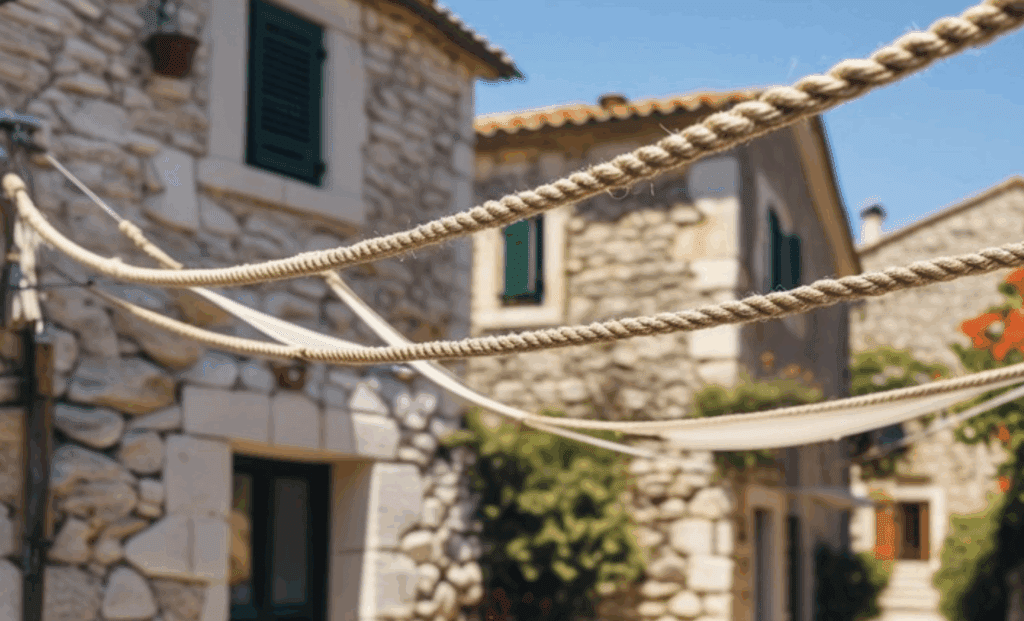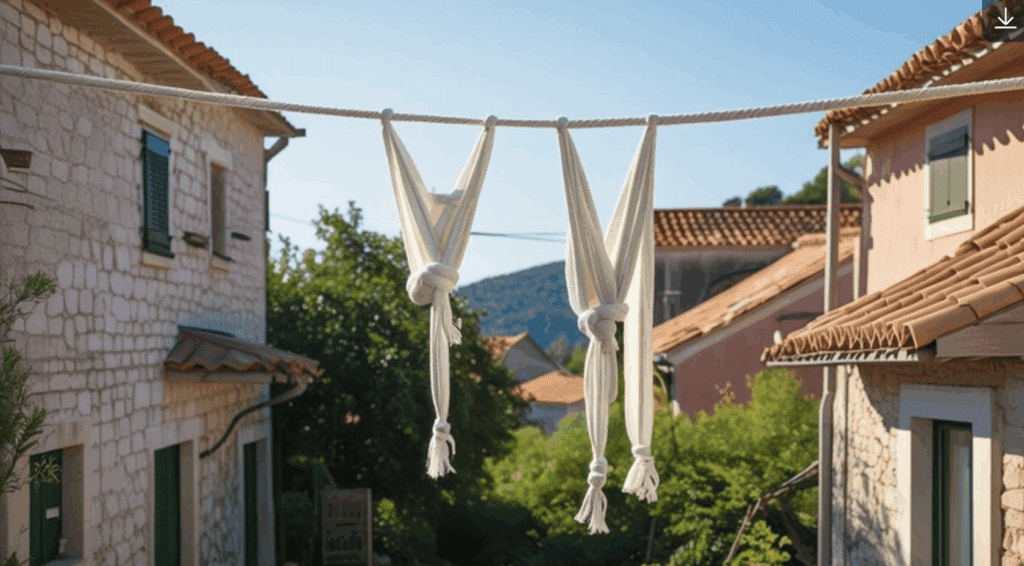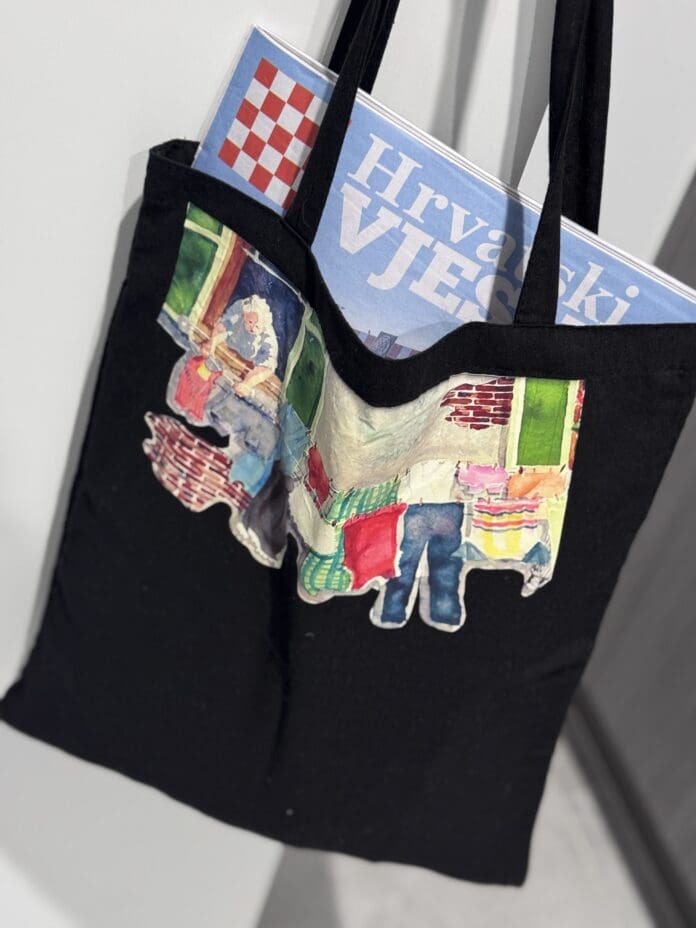From tourist magnet to municipal offence
A rope stretched between two windows, a balcony full of freshly washed laundry swaying in the Mediterranean breeze, neighbourly chatter through open windows – all of this forms the essence of everyday life in Croatian towns that is slowly disappearing. What has been a natural part of life on Croatian islands and along the coast, in Istria… for centuries, has now become an offence punishable by fine in many cities.
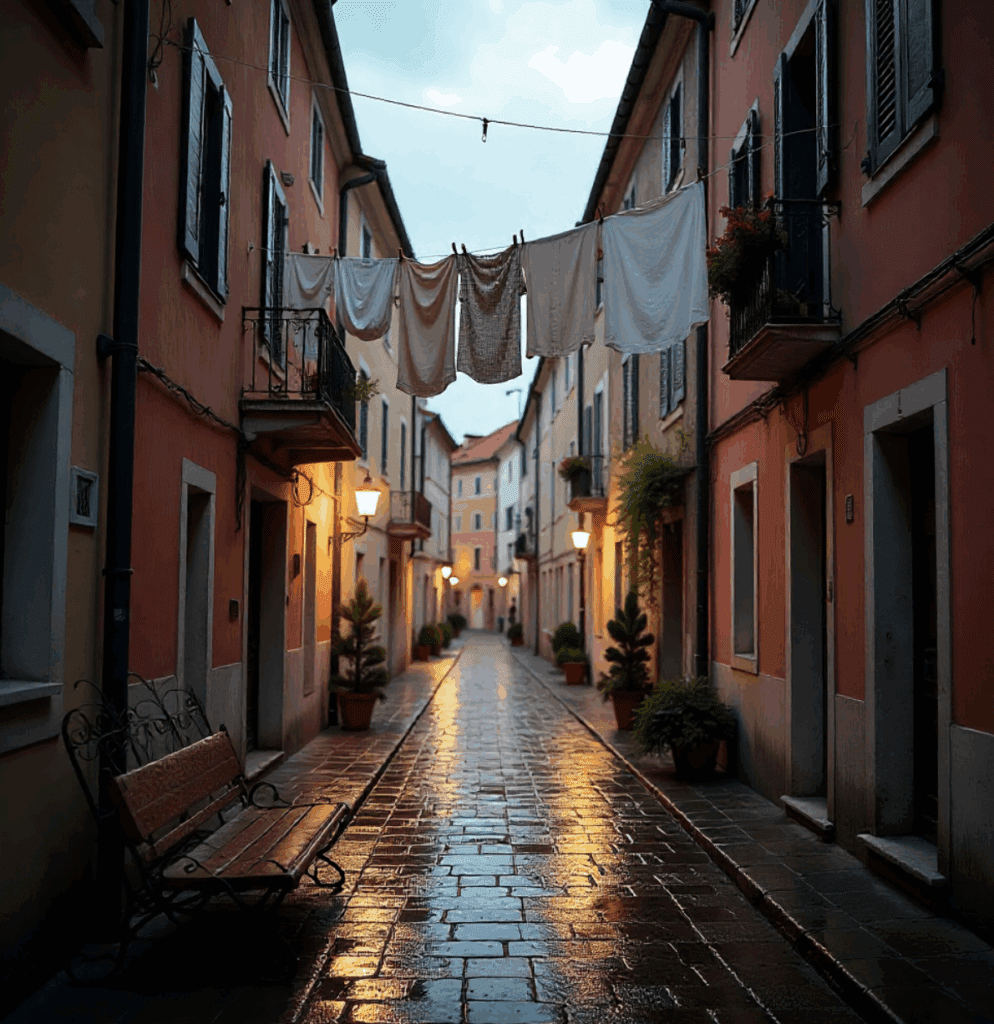
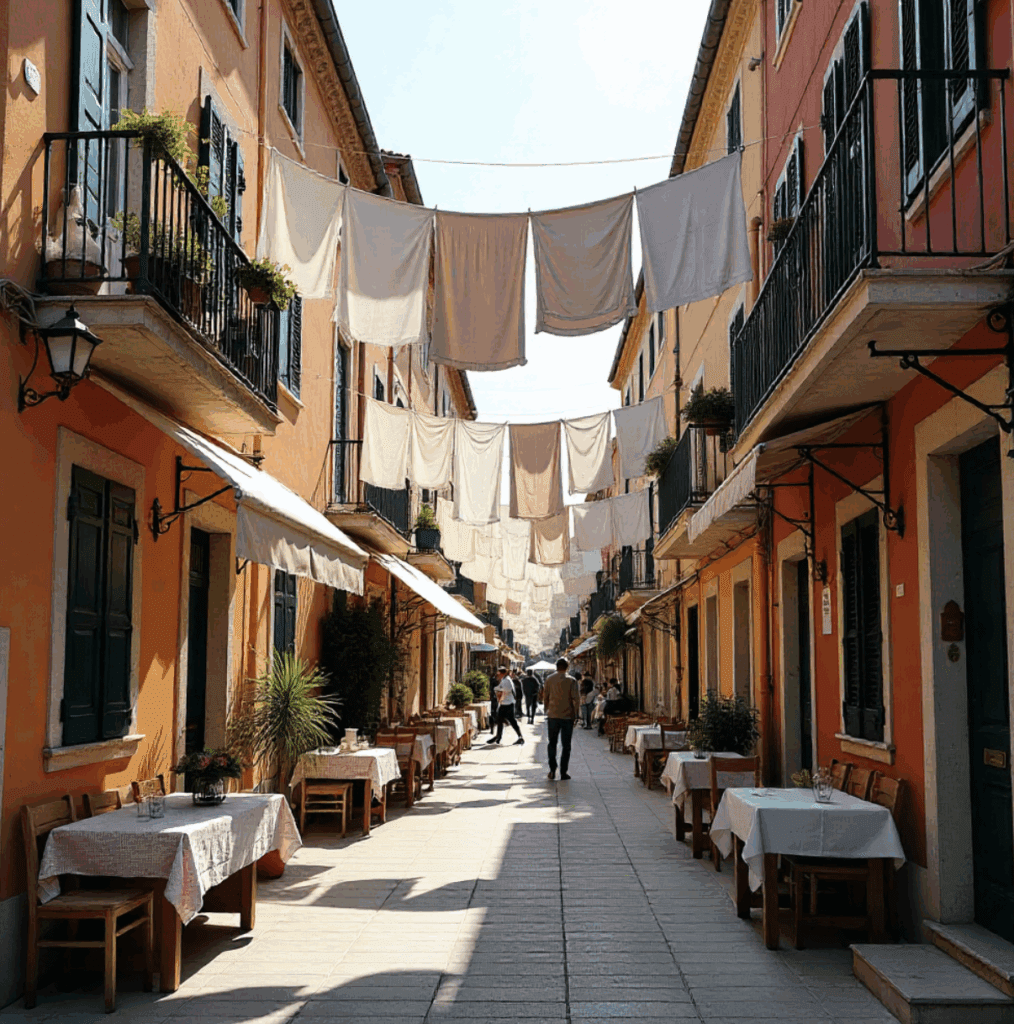
A ban that changes the urban landscape
Several years ago, Rijeka, Kolan on Pag, Šolta, Mljet, Kaštela… incorporated provisions and prohibitions into their new Municipal Order decisions. These decisions, adopted to align with the Municipal Economy Act, prohibit hanging laundry, bedding, carpets and other items on windows, balconies and railings facing streets or squares.
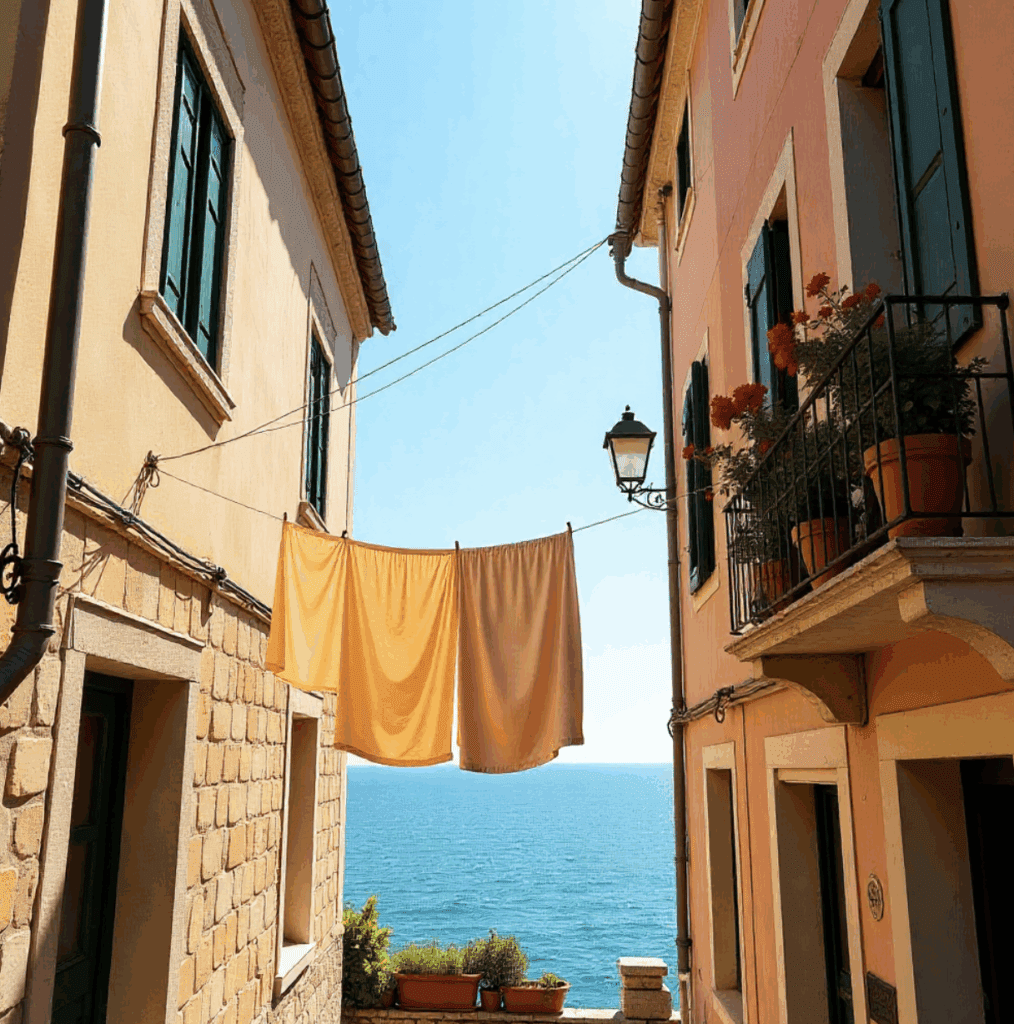
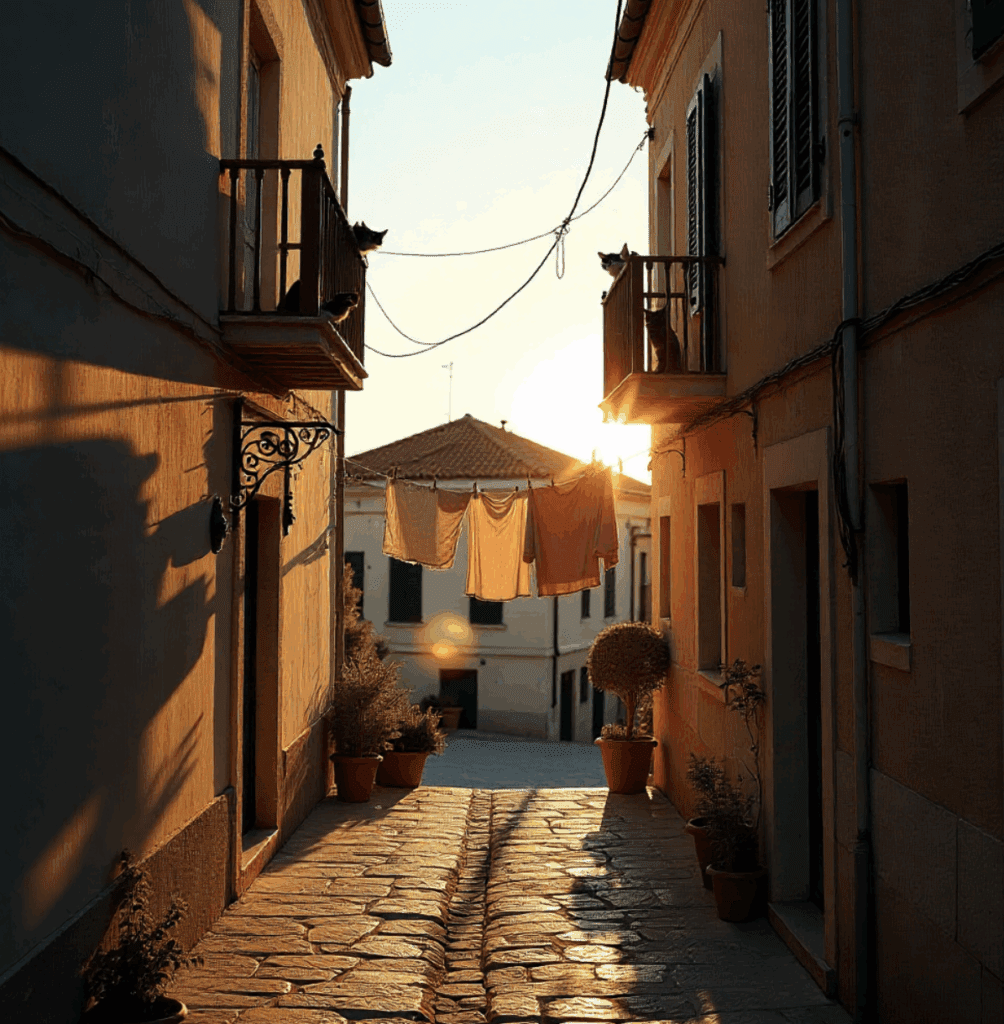
What exactly is a ‘tiramola’? Simply a rope threaded through a pulley, used primarily for drying laundry and occasionally for mooring boats. The name comes from maritime terminology – a compound of two imperatives from Venetian dialect: “tira” (pull) and “mola” (release). Ironically, the same expression for a washing line doesn’t exist in Venice itself. Dalmatia adopted this term from naval commands and transferred it into everyday domestic use.
A tourist attraction becoming history
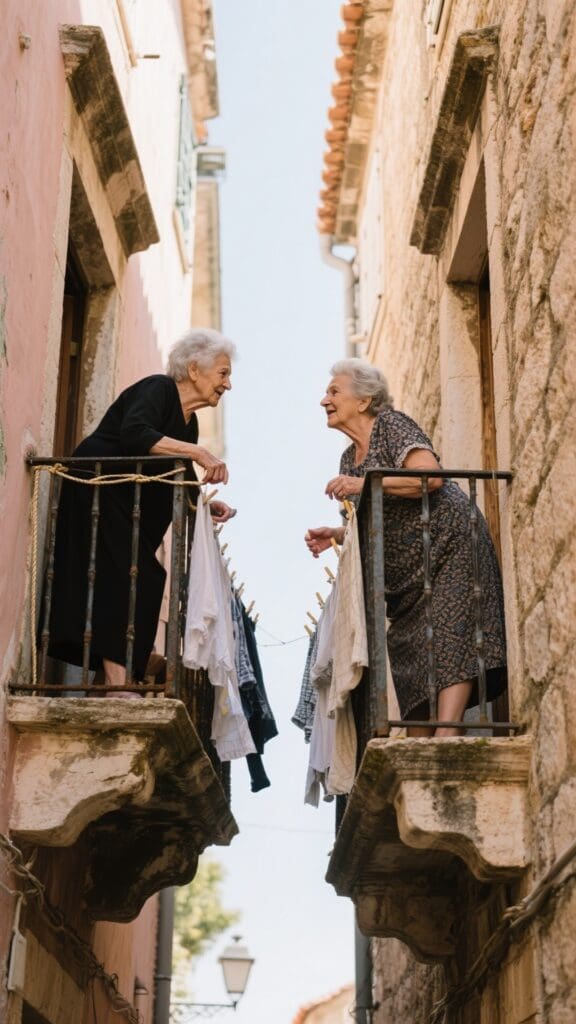
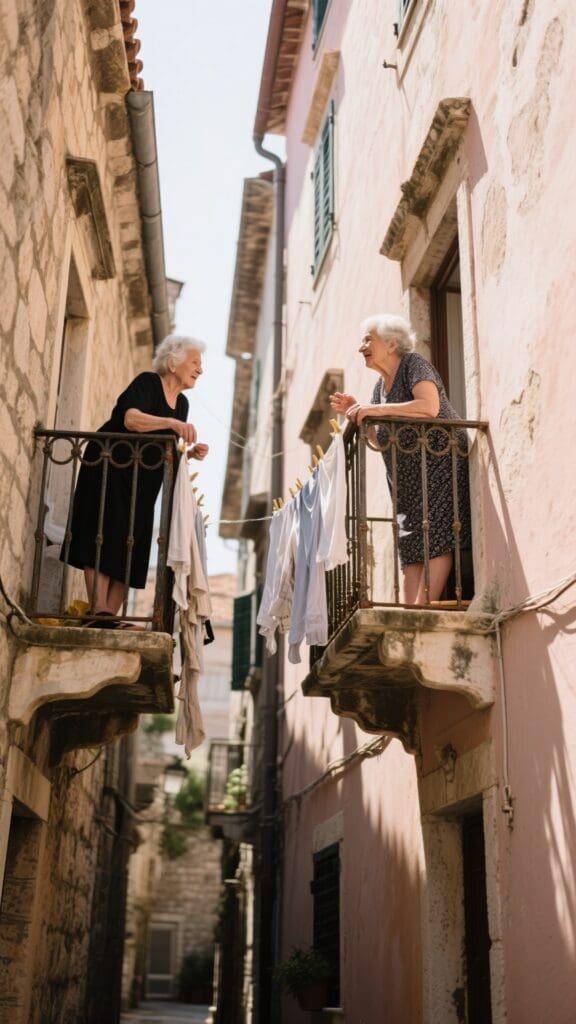
Paradoxically, what local authorities consider unsightly was one of tourists’ favourite Croatian urban motifs. Foreign visitors regularly photographed colourful laundry swaying above narrow Dalmatian streets, seeing in it an authentic picture of Mediterranean life. These photographs became an essential part of tourist albums and social media pages, a symbol of the simplicity and approachability of the distinctly Dalmatian mentality.
The rope stretched between two points was more than a practical aid – it was a visible connecting wire, a symbol of communication, directness and openness. Through windows beneath the tiramola, neighbourly stories were shared, experiences exchanged, community preserved – rather like the ‘eye of Big Brother’ – a place from which everything was ‘recorded’ and transmitted – without any technology whatsoever! Except for a stretched rope.
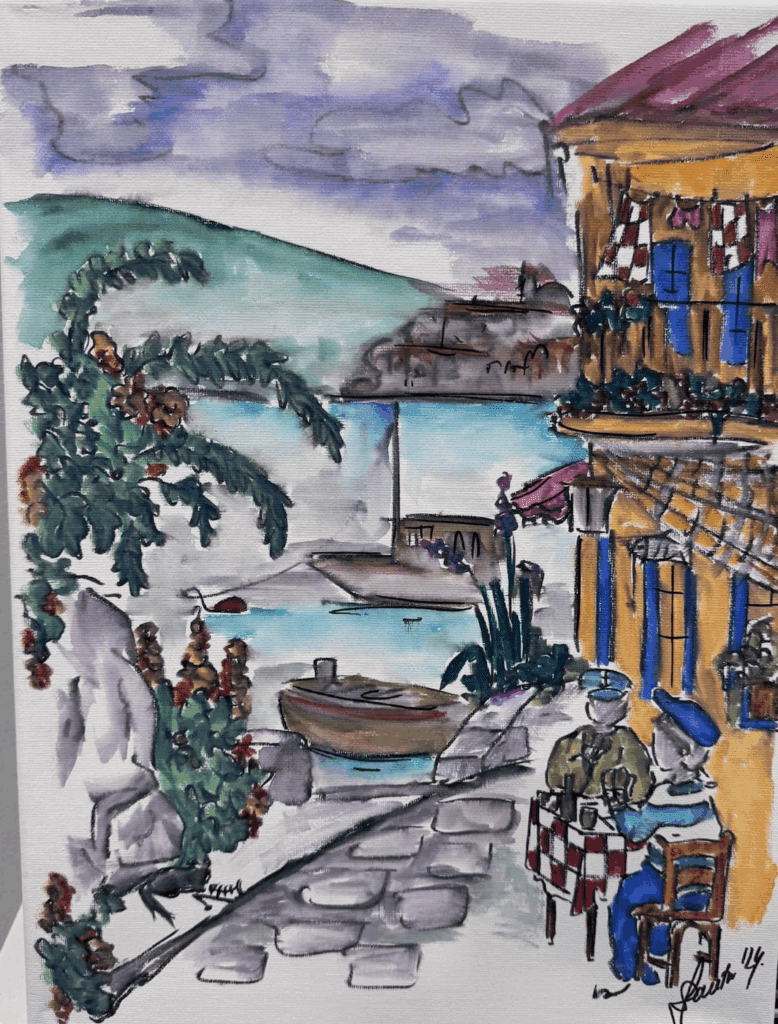
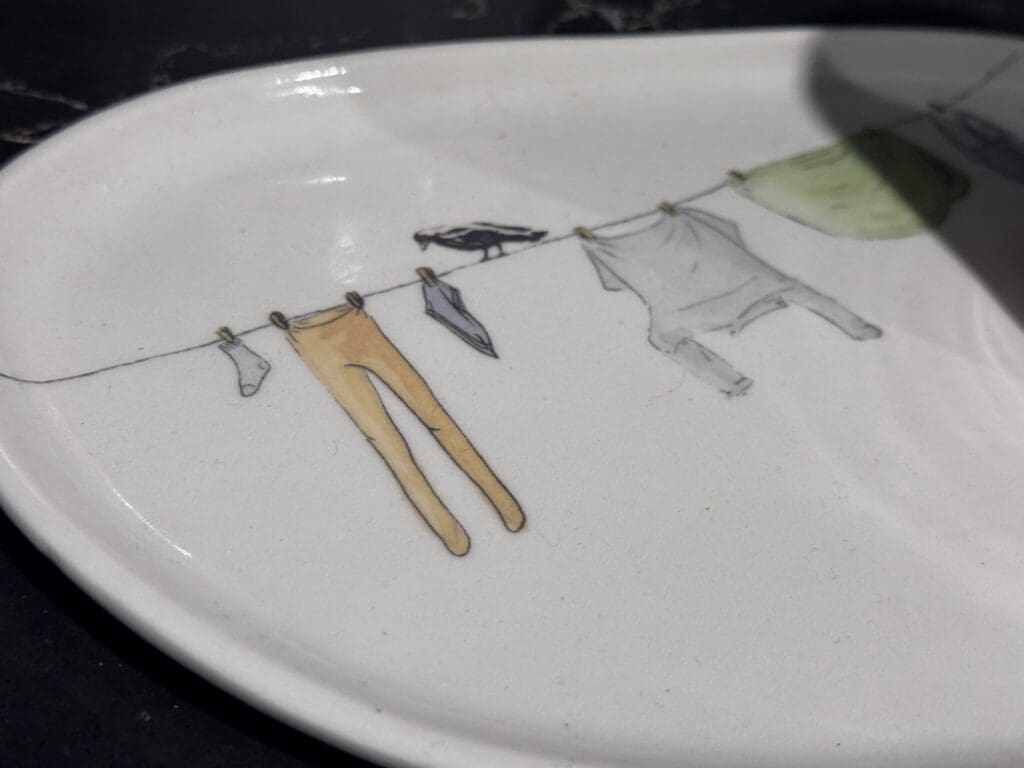
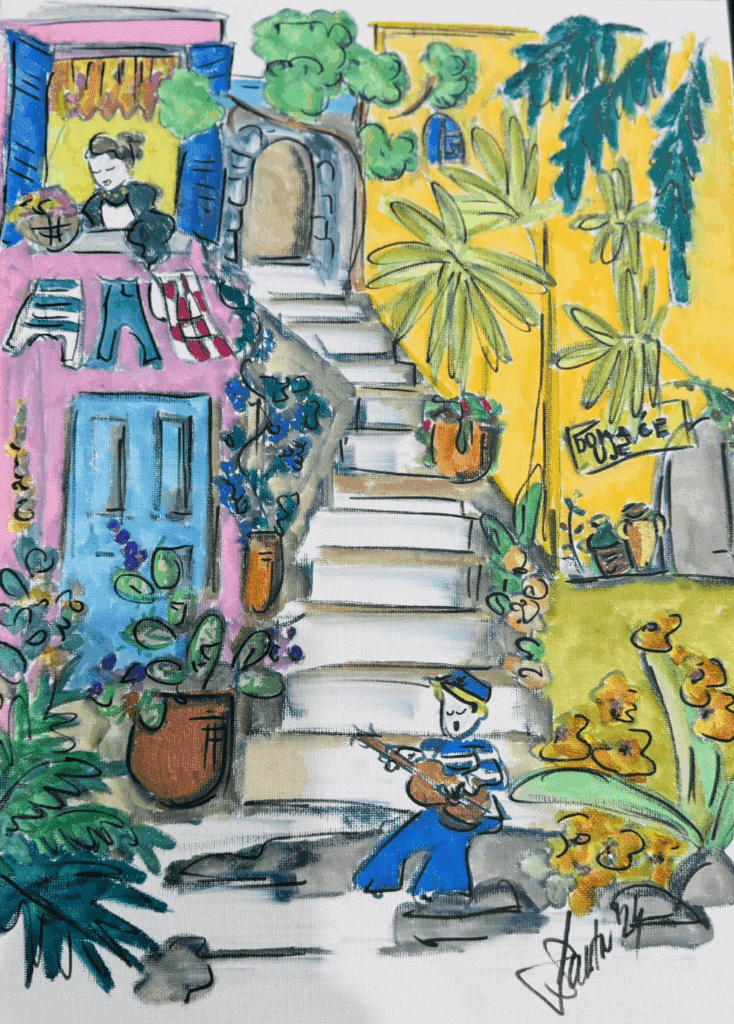
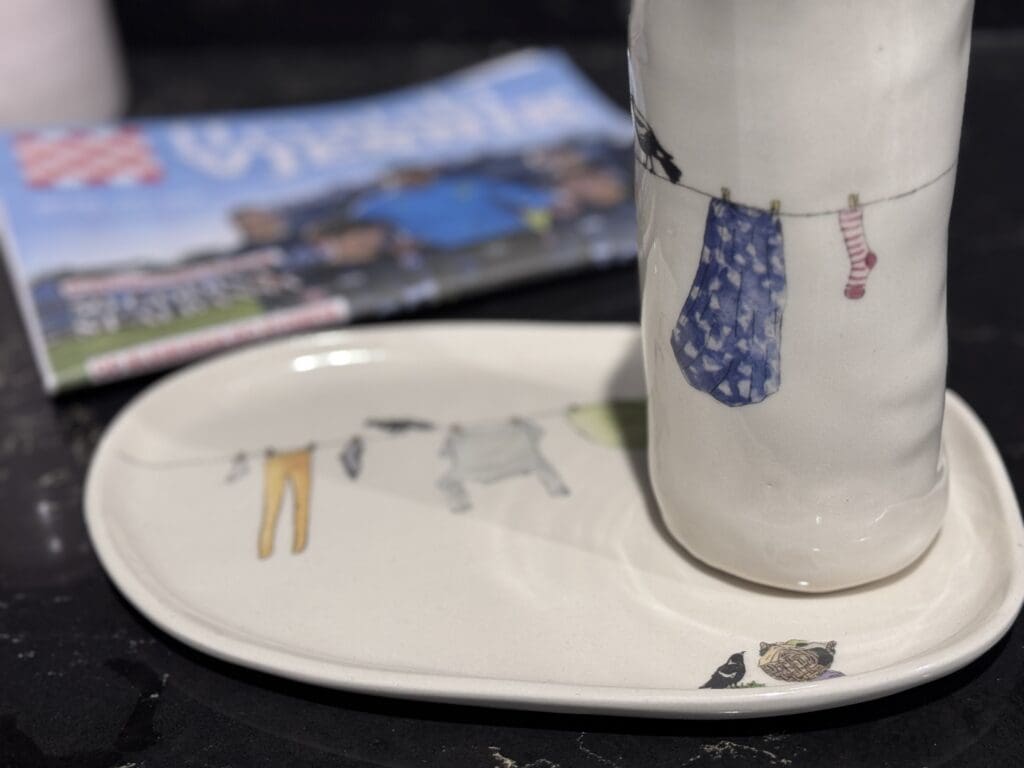
Practicality versus aesthetics
City authorities emphasise that laundry can be hung on all three other sides of buildings that aren’t exposed to public thoroughfares. They also stress that wardens won’t fine those who lack proper facilities – those without balconies or suitable sides of their houses for drying laundry.
The trend of prohibition is spreading to inland Croatian cities as well. Among them is Osijek, which has introduced similar penalty provisions, showing that this change doesn’t apply only to coastal towns.
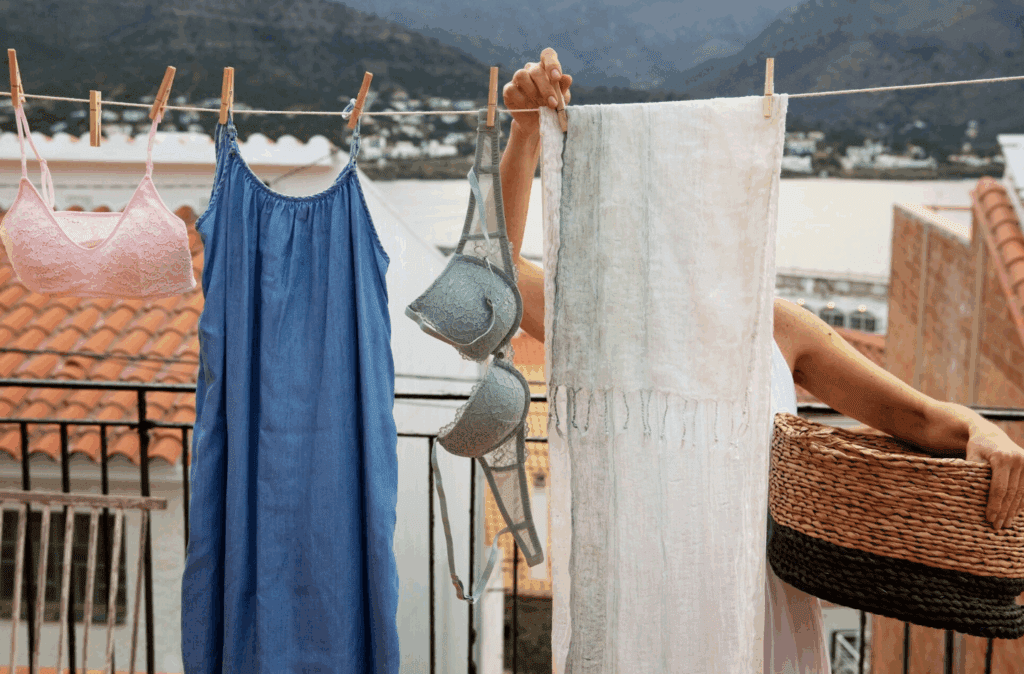

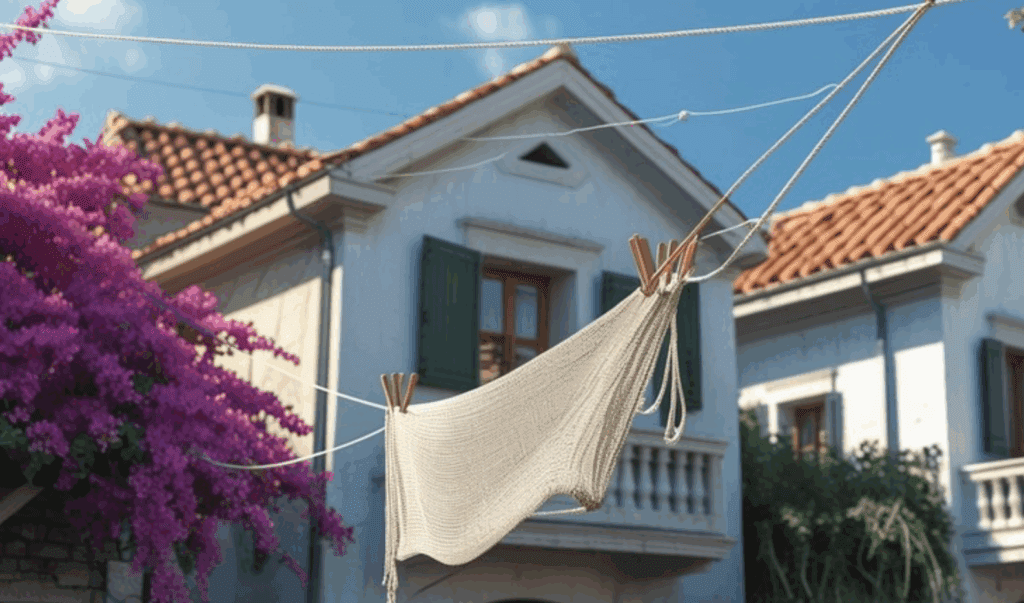
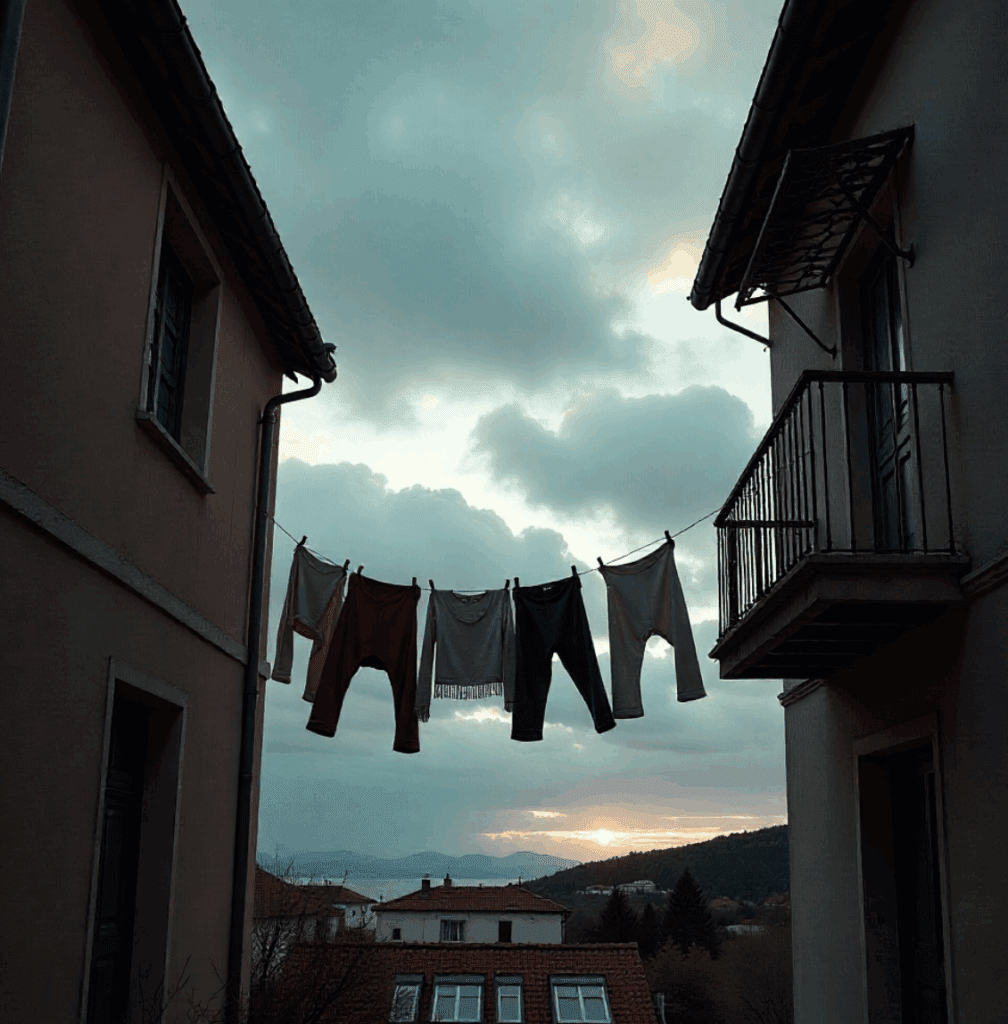
When washing ropes disappear
So the faded rope not only bleaches in the sun, but increasingly belongs to the past.
The question is whether urban aesthetics and modernisation will succeed in replacing what ‘tiramolas’ represented – a simple yet profound expression of community and practicality that formed an inseparable part of the soul of old town streets, Dalmatian neighbourhoods…
